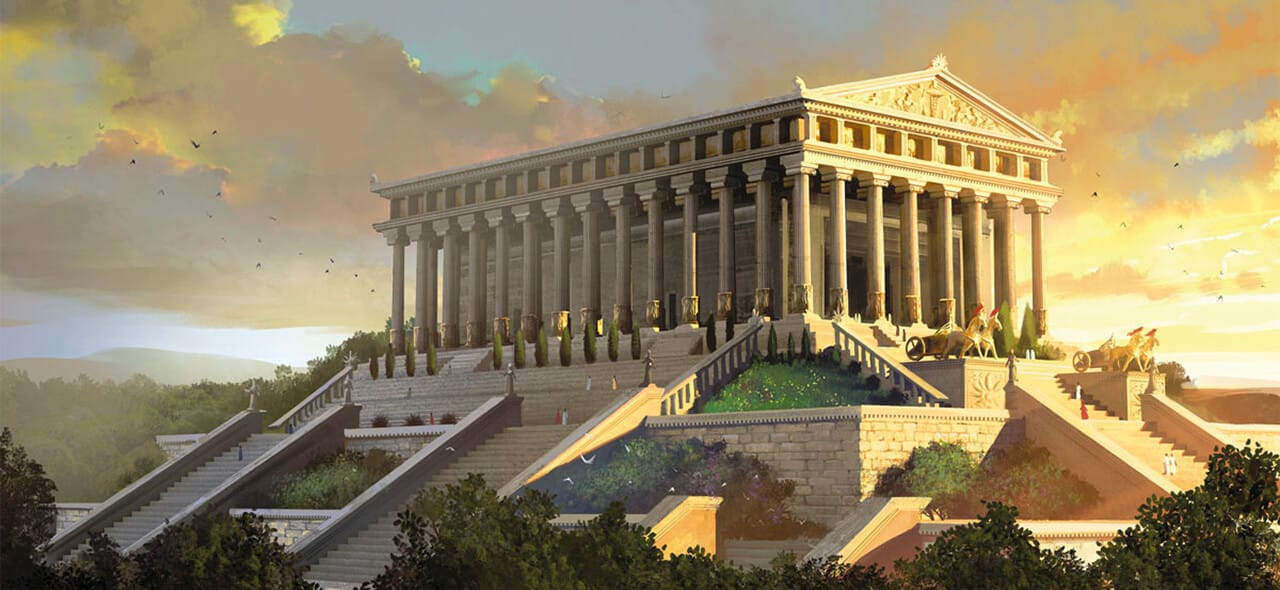Apocalypse | 011 | To the Angel of Ephesus
The history of the seven churches began at the anointing of Jesus Christ in 27 AD, and it is this church that is His agency for the proclamation and demonstration of the saving gospel. It is this church that will, in the succeeding generations, be His people until the end of time.
Said the apostle Paul, "For ye are all the children of God by faith in Christ Jesus. For as many of you as have been baptized into Christ have put on Christ. There is neither Jew nor Greek, there is neither bond nor free, there is neither male nor female: for ye are all one in Christ Jesus. And if ye be Christ’s, then are ye Abraham’s seed, and heirs according to the promise." (Galatians 3:26-29)
During the time of John, Ephesus was a metropolitan city in the Roman Empire's province of Asia Minor, known today as modern Turkey. It was a city of elites, much like New York or Dubai today, a center for trade, pleasure, and antiquities culture of many cultures especially Greek and Roman. Ephesus in the Greek language means something that is desired.
During his stay at Ephesus with Acquilla and Pricilla, the apostle Paul came face to face with the central religion of the city, which was the worship of the Roman goddess Diana, known to the Greeks as the goddess Artemis. (read Acts chapters 19 and 20)
The Great Temple of Artemis was erected in her name and was one of the seven wonders of the ancient world. Paul's ministry and the growth of the Christian church in the city led to the decline in sales of statues and religious items dedicated to the goddess Diana. Since this was the central business of the city, it caused an uprising from the businessmen of Ephesus. Paul was almost executed because of his open rebuke against the worship of the goddess.
The church of Ephesus referred to the period of time between 27 AD to approximately 100 AD when the apostles, even though they were martyred one by one, were still alive. John the penman of the book of Revelation, was the last of the apostles to die in 100 AD.
As a fresh fire burning on dry wood, the zeal was hot! Jesus said, "I know thy works, and thy labour, and thy patience, and how thou canst not bear them which are evil: and thou hast tried them which say they are apostles and are not, and hast found them liars: And hast borne, and hast patience, and for my name’s sake hast laboured, and hast not fainted." (Revelation 2:2-3)
This church "...turned the world upside down..." (Acts 17:6) due to their zeal through the power of the Holy Spirit given to them at the day of Pentecost. There was no idleness and lazying around, patience was brewed in their characters as a result of the grand responsibilities they chose to bear. Over and over again in the Bible, you'd read Paul, Peter, John other apostles rebuking people and even themselves if they stepped out of line from the truth of God.
Jesus, who looks into the hearts of the people, saw a decline in their love for God. The fire began to die down during the initial stages of Christianity preparing the way for a great time of darkness. "I have somewhat against thee, because thou hast left thy first love.", said Jesus, "Remember therefore from whence thou art fallen, and repent, and do the first works; or else I will come unto thee quickly, and will remove thy candlestick out of his place, except thou repent."
We see the use of strong rebuke and exhortation by Jesus as He counsels this church to repent, making sure to put His foot down in an uncompromising way so that we know that He is serious about His warning. Do not take God's mercy for granted.
In the early stages of the ministry by the twelve apostles, when the number of disciples was increasing, the Grecians among them complained against the Hebrews because their widows were being overlooked in the daily distribution of food. So the Twelve gathered all the disciples together and said, “It would not be right for us to neglect the ministry of the word of God in order to wait on tables. Brothers and sisters, choose seven men from among you who are known to be full of the Spirit and wisdom. We will turn this responsibility over to them and will give our attention to prayer and the ministry of the word.” Among these seven men was Nicolas of Antioch who was a convert from paganism into Judaism and Christianity. (taken from Acts chapter 6)
Jesus urges us to overcome the weaknesses He has pointed out by giving the words of promise "He that hath an ear, let him hear what the Spirit saith unto the churches; To him that overcometh will I give to eat of the tree of life, which is in the midst of the paradise of God." If you have not guessed by now, God's new Paradise is the refurbished Eden with the tree of life at its center.
It is my prayer that one day, you and I will be partaking in the tree of life together. Until then, God bless you.





Comments
Post a Comment